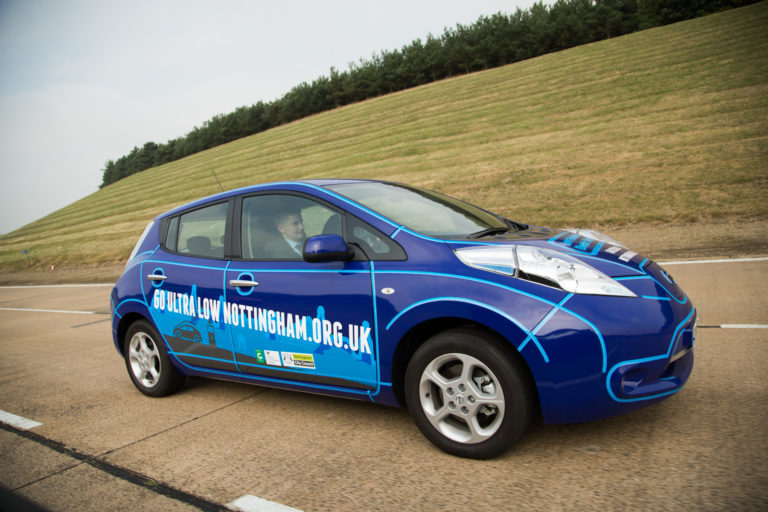Nottingham City Council has begun putting its recently awarded funding for ultra-low emission vehicles (ULEV) to use in a programme ranging from the installation of 230 fast and rapid chargers to the UK’s first ULEV dedicated lane.
The city was awarded £6.1 million last year under the Go Ultra Low City scheme, which saw UK cities compete for a share of £40 million to be used to boost take-up of ULEVs across the country.
Nottingham City Council has begun by increasing the proportion of ULEVs in its fleet in an effort to reach 20% (80 vehicles) by 2020.
A number of projects are also under way in the city, including the EV charge point installation programme across Nottingham, Nottinghamshire and Derby to be completed before 2020, providing the infrastructure and support to drivers of electric vehicles.
Councillor Sally Longford, portfolio holder for neighbourhood services and local transport, said: “The City Council is continuing to lead the way in supporting new, cleaner technology.
“All our activities will support local economic growth and help reduce carbon and nitrogen dioxide impacts of transport, creating a more sustainable environment and cleaner air for our citizens, while maintaining our position as one of the leaders in local integrated transport delivery.”
Among the other initiatives taking place in the city is a grants scheme offering up to £25,000 for businesses, public sector and voluntary organisations to spend on electric vehicle charge points, or to encourage alternative initiatives such as cycling.
The council is also delivering electric vehicle trials, offering a ‘try before you buy’ option to businesses; EV experience events to promote sustainable transport; and workshops aimed at businesses introducing and explaining new technologies.
“There still exist a number of misconceptions about electric cars and other low-emission vehicles, and an important part of the Go Ultra Low project is to engage with the public, businesses and the wider industry to address these, while also creating an environment that supports increased use of greener technologies,” Longford added.
A shared bus and electric vehicle priority lane will also be piloted as part of the Daleside Road Improvement Scheme which is currently under construction.
Nottingham has become the latest Go Ultra Low City winner to have begun rolling out its investment programme after Milton Keynes awarded a £2.3 million EV charging infrastructure contract. Meanwhile, Oxford recently published plans for what is thought to be the largest electric vehicle charging pilot of its kind in the world.






